Corporate Sustainability: Platinum is Our New Green
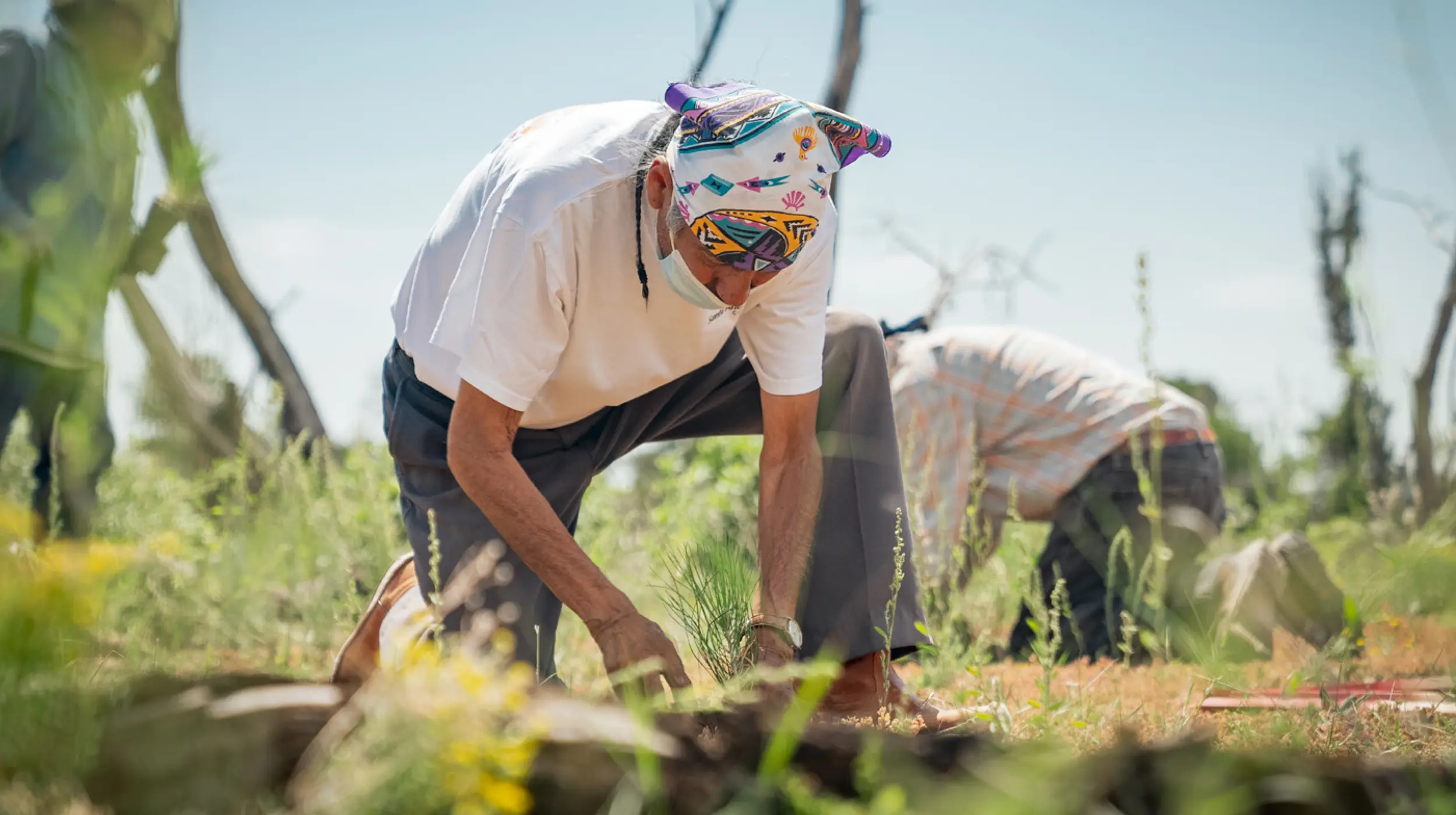
It’s no secret we pride ourselves on being an eco-friendly manufacturer. But for The Bernard Group, that’s the baseline. We go beyond recycled paper and green alternatives to corporate sustainability as a whole. Need proof? We’ve maintained our EcoVadis sustainability rating of Platinum for the second year. How’s that for proof? Our Director of Corporate Social Responsibility, Liesl Beck, details how we did it (and what’s next).
“We’re dedicated and committed to leading our industry in having a positive social and environmental impact.”
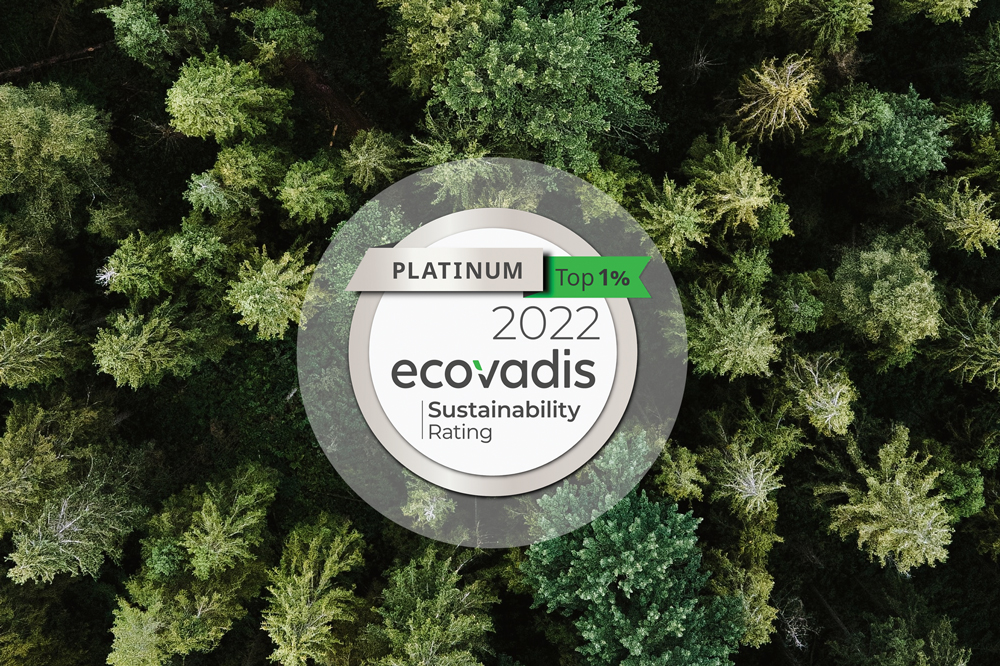
Paved in Platinum
So what does it all mean? EcoVadis is an independent Corporate Social Responsibility (CSR) evaluation company. They help us integrate CSR principles into our daily business initiatives. A high rating from them means we’re on the right track and the eco efforts of our online printing shop are effective.
Reaching EcoVadis Gold status in 2019 was an achievement in and of itself, as was retaining it through 2021. But going Platinum in 2022, and maintaining it for two years takes green manufacturing on a whole new level. What’s the difference? Platinum means we’re in the top 1% of all companies EcoVadis evaluates in the printing services industry. Not bad, huh? And every year we maintain Platinum, we have to achieve higher and higher levels of sustainability.
“We’re in a constant cycle of continuous improvement. We began our CSR journey in 2018 and to reach Platinum status in only four years is amazing, and to maintain it is a testament to our commitment,” said Beck. “It’s a true testament to our employees’ hard work and collaboration. We’re dedicated and committed to leading our industry in having a positive social and environmental impact.”
One major contributor to our corporate sustainability success is our Carbon Neutral Program. Along with our new Platinum status comes the purchase of new Renewable Energy Certificates (RECs) and carbon offsets from an environmental solutions provider.
“Our customers asked that we focus on forestry and protecting endangered habitats.”
Leading the Industry
Carbon dioxide emissions are broken into three categories:
- Scope 1: Emissions are made directly by our five primary facilities and company vehicles in Minnesota.
- Scope 2: Emissions consist of those generated by the electricity we purchase from local energy partners.
- Scope 3: Emissions include those made by our supply and distribution chain, employees commuting, business travel, purchased goods and waste disposal.
Most companies with carbon offset programs usually offset only Scope 1. We, on the other hand, offset Scopes 1 and 2 all the way back in January 2020 (with Scope 3 in the works!). What can we say? We go big when we go green.
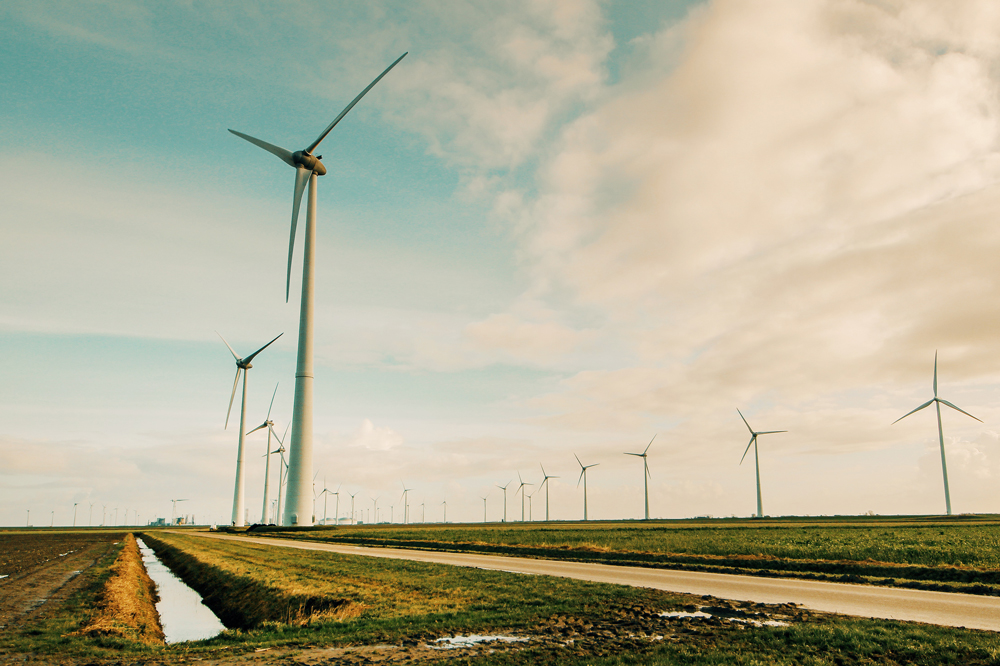
RECs: Planning for the Planet
RECs account for and promote the use, expansion, development and maintenance of renewable energy sources. They also channel funds directly to renewable energy and greenhouse gas reduction projects. (As an eco-friendly printer, this is especially important to us.)
Our new RECs:
- Green-e® Certified Wind, Solar and Biomass Renewable Energy Certificates in the United States and Canada.
- DYK: “Green-e Certified” renewable energy meets the highest standards in North America. It must be generated from new facilities that meet rigorous standards for environmental quality, marketed with complete transparency and accuracy and delivered to the purchaser, who has sole title.
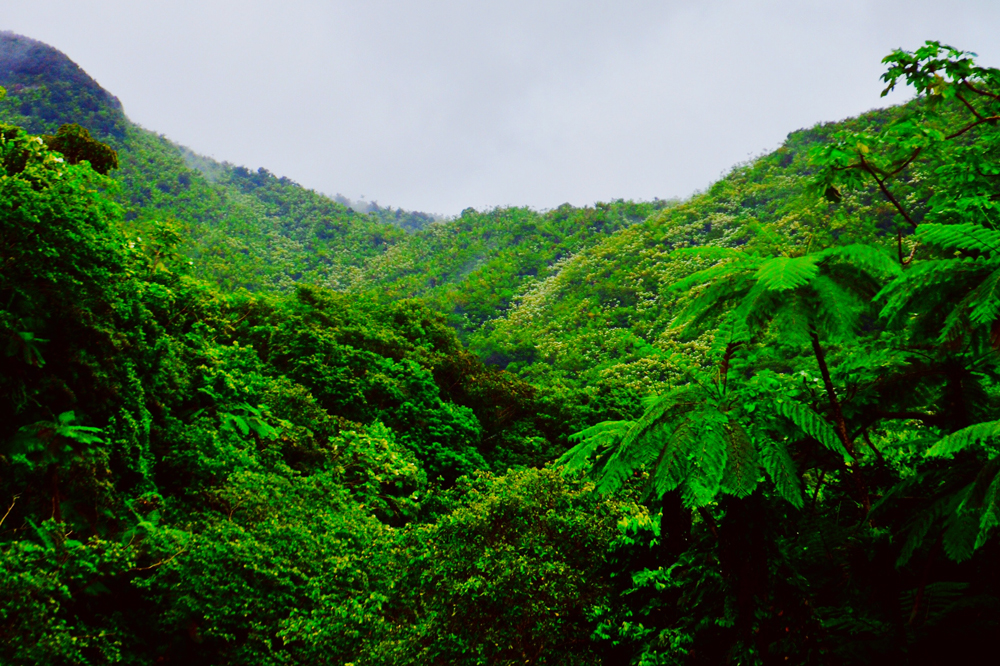
Carbon Offsets: Reducing Our Carbon Footprint
Carbon offsets address greenhouse gas emissions. They enable organizations like ours to reduce our environmental impact by supporting projects that are actively working to reduce, absorb or prevent carbon and other emissions from entering the atmosphere.
Our new Carbon Offsets:
- Cordillera Azul National Park Project in Peru- We chose this project because our customers asked that we focus on forestry and protecting endangered habitats. This project in the “Jewel of the Peruvian Amazon” combats deforestation, protects its habitat and biodiversity and supports local communities as they transition to sustainable livelihoods.
- Teles Pires Hydropower Project in Brazil- This plant makes use of renewable hydroelectric resources instead of fossil-fuel-fired electricity.
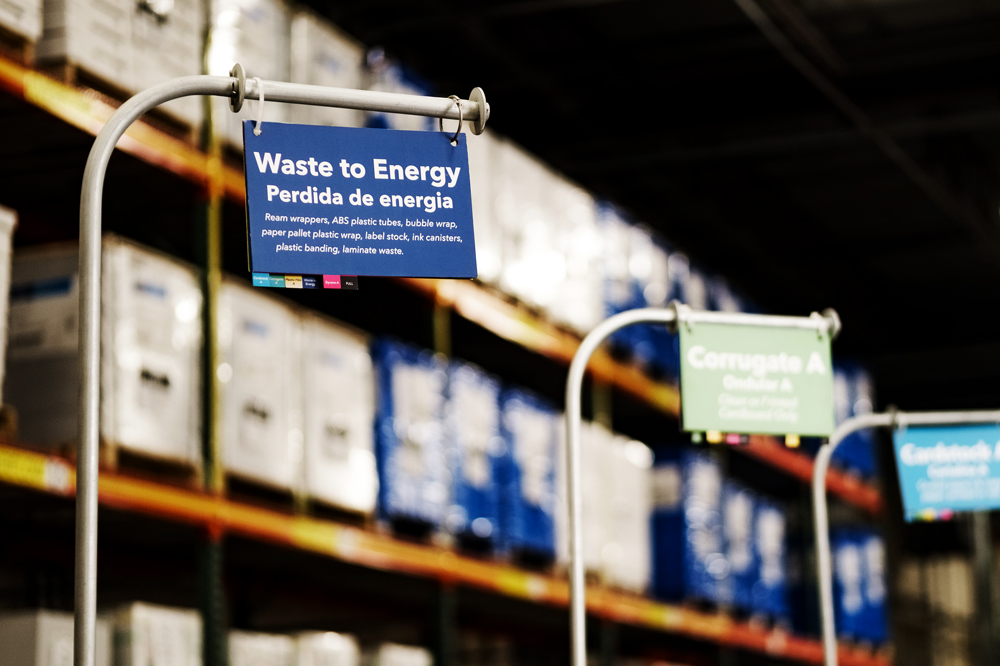
Green Foot Forward
So where do we go from here? Beyond our sustainable paper and eco-friendly substrates, offering environmentally conscious online printing services and business practices is an ever-evolving challenge – but it’s one we’re up for. Each year TBG’s Environmental Management team sets new objectives. This is what we’re aiming at in 2023:
- Recycling Program: Improve our waste program performance throughout all facilities, including optimizing waste streams, ensuring all recycled material is properly sorted and improving awareness with employees. We aim to redirect 500 tons of waste with improved recycling practices.
- Offset Scope 3 Emissions: Complete our Scope 3 calculations and offset 100% of these emissions. We began measuring Scope 3 in 2021. This data will be vital in understanding and improving environmental performance in all areas.
- Calculated Energy Savings Projects: Reduce energy consumption with a variety of projects that will be identified and implemented throughout 2023, including shutting down idle equipment, LED retrofits, occupancy sensors and eliminating compressed air leaks. Our goal is a total energy savings of 100,000 kWh.
Hint:
Show off your green printing prowess with our carbon neutral logo! Just download it for FREE here and add it to your next online printing project.
Q&A
We could go on and on about our CSR strategy. But why not hear it from the expert? We’ll let Beck take it from here.
What steps are needed for a company to go through the EcoVadis evaluation process?
Liesl Beck: “EcoVadis created an assessment based on our industry and headcount. The assessment took weeks to complete as collaboration with multiple departments was needed to compile all the information and documentation required to answer the questions.
“Once submitted, EcoVadis evaluated our answers and documentation based on their criteria, Global Reporting Initiative (GRI) standards and the United Nations’ Sustainable Development Goals (SDG). Their evaluation took nearly eight weeks to complete, then we received our score, which is now available for us to share with our clients and vendors.”
How did TBG prepare for this assessment?
Liesl Beck: “With the results of last year’s assessment, we received a scorecard, performance strengths, areas for improvement and reporting guidelines based on GRI. The suggested areas of improvement were closely considered and our annual initiatives were set based on our CSR objectives and overall company strategy.
“The CSR department then collaborated with multiple departments to collect specific information, communicate new initiatives and provide the necessary documentation.”
How did we maintain Platinum from 2022 to 2023?
Liesl Beck: “Some of the initiatives implemented in 2021 made a huge impact. We implemented our Carbon Neutral Program by purchasing verified carbon credits and renewable energy. We also publicly reported our Scope 1 and 2 emissions through the Carbon Disclosure Project (CDP).
“We launched company-wide discrimination and harassment training, as well as a program that promotes inclusion of employees with disabilities. We even implemented formal awareness training to prevent corruption, plus audits of the control procedures in place to prevent corruption.
How do employees contribute to our company’s eco success?
Liesl Beck: “Many of our employees are passionate about the environment and every one of them has an impact on our environmental performance. We provide awareness training to show them how their role or job affects the environment and specific ways they can contribute to improving our overall performance.
“We also provide Eco Design tools to our sales teams, so they can help guide our clients on how to design and produce their projects more sustainably.”
Why is having a robust environmental program important to TBG?
Liesl Beck: “Our environmental policy states that we’re committed to leading the industry by reducing our impact on the environment. It’s important to us as a company to do the right thing for both the environment and our community and to be an example for our clients, suppliers and all of our stakeholders.”